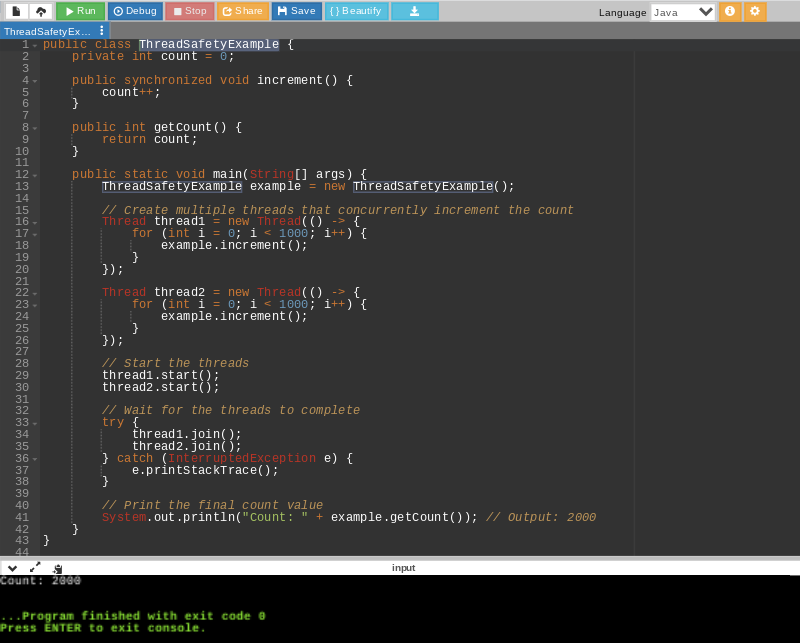Why Are Strings Immutable in Java? Enhancing Code Reliability
Why Are Strings Immutable in Java? Enhancing Code Reliability
Blog Article
What Is Unalterable Strings and How It Works
In the world of programming, comprehending the concept of unalterable strings is paramount for producing durable and protected applications. Immutable strings refer to strings that can not be altered after they are developed, making sure information honesty and predictability within the code.
The Basics of Unalterable Strings
Immutable strings, as a fundamental idea in programs, are personality sequences that can not be transformed once they are developed. This means that once a string is designated a value, that value can not be changed. In languages like Python and Java, strings are unalterable things, bring about various effects in terms of memory administration and data honesty.
Among the essential advantages of immutable strings is that they supply a feeling of protection in data manipulation. Since the web content of an immutable string can not be customized, it ensures that the initial information remains intact, minimizing the danger of unplanned modifications throughout program implementation (Why are strings immutable in Java?). This residential property additionally simplifies debugging processes, as programmers can rely on that when a string is specified, its value will certainly not be accidentally changed
Moreover, immutable strings help with reliable memory usage. When a new string is produced based upon an existing one, instead than modifying the original string, the brand-new value is saved independently. This approach boosts efficiency by lowering memory fragmentation and streamlining memory allocation processes. Overall, recognizing the basics of immutable strings is crucial for understanding shows principles and maximizing code effectiveness.
Advantages of Unalterable Strings
Building upon the safety and security and effectiveness benefits of immutable strings, their benefits expand to boosting code reliability and simplifying simultaneous programming jobs. By being unalterable, strings can not be customized after development, which gets rid of the threat of unexpected changes in the information they save. This inherent immutability makes sure that once a string is produced, its worth stays consistent throughout the program's implementation, minimizing the chances of bugs created by unexpected alterations.
Furthermore, unalterable strings add to code dependability by making it simpler to reason about the state of a program. Given that strings can not be changed, programmers can trust that a string will constantly hold the same value, simplifying debugging and maintenance initiatives. This predictability results in more dependable and secure codebases.

Application in Shows Languages
Within various programming languages, the incorporation of immutable strings is a fundamental element that influences just how data is taken care of and manipulated within code structures. The implementation of immutable strings varies across different shows languages, with each language offering its own mechanisms to support this principle.
On the other hand, languages like C and C++ do not have built-in assistance for unalterable strings. Programmers in these languages need to by hand apply immutability by applying policies within their code to avoid direct alterations to string items.
Finest Practices for Working With Unalterable Strings
When managing immutable strings in shows languages like Java and Python, sticking to best practices ensures protected and effective information adjustment. One of the essential ideal practices is to use StringBuilder or StringBuffer as opposed to directly adjusting strings, particularly when managing comprehensive concatenation procedures. These courses supply mutable options for string control, assisting to stay clear of unneeded memory allowances and boosting efficiency.
Additionally, when functioning with sensitive information such as passwords or API keys, it is vital to prevent saving them as ordinary message in immutable strings. Using secure storage mechanisms like char selections or specialized libraries for managing sensitive info aids mitigate protection threats connected with immutable strings.
Real-world Applications and Examples
Checking out practical implementations of immutable strings in numerous markets discloses their substantial influence on information stability and system dependability. In the medical care industry, unalterable strings play an important function in ensuring the safety and confidentiality of individual information. By avoiding unauthorized alterations to delicate details such as medical records and prescriptions, immutable strings help preserve compliance with rigorous personal privacy guidelines like HIPAA.
Financial institutions likewise take advantage of the immutable nature of strings to improve the safety of consumer data and deal documents. Immutable strings assist protect against fraud and unapproved alterations to monetary info, providing a robust protection against cyber dangers and making certain the count on and Bonuses self-confidence of clients.

Verdict
Best practices for functioning with unalterable strings include preventing direct alterations and making use of methods that return new string things. Real-world applications of immutable strings consist of data file encryption, caching, and string adjustment jobs.
Immutable strings refer to strings that can not be modified after resource they are produced, making sure data honesty and predictability within the code. When a brand-new string is produced based on an existing one, instead than modifying the initial string, the new worth is kept separately.In languages like Java and Python, strings are unalterable by default, meaning that as soon as a string item is produced, its worth can not be changed - Why are strings immutable in Java?. Ideal methods for working with immutable strings include preventing direct adjustments and utilizing methods that return new string things. Real-world applications of unalterable strings include information file encryption, caching, and browse this site string adjustment tasks
Report this page